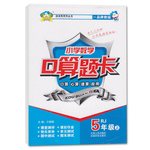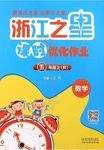题目内容
When you don’t have anything planned for the day or it’s rainy outside and your children are stuck in the house, why not sit around and tell them riddles? Telling riddles will make your family laugh and sometimes even scratch their heads, trying to figure out what the answer is.
Riddles have been a pastime for centuries. Not only have riddles been something for passing the time, but they have also been used to pass on secret information during the Second World War. Even the ancient Greeks used riddles. They would tell riddles at parties and whoever was the first to get them right would receive prize.
Most riddles use words that have double meanings or share the same sound like “hear” and “here”. So in order to get the riddle, you will have to do some creative thinking and think of all the possibilities of different words. The difficulty of figuring out the riddle is based on the riddle itself. The riddle has to provide you with enough clues to come to the right answer, but that doesn’t mean that the clues have to be easy.
If you are looking to tell riddles but don’t know any, you can look online and you will find a large number of sites that will have hundreds of different riddles to choose from. If you would like to look somewhere else then you could look at your local bookstore, where you will be able to find many different books with thousands of riddles to choose from. You can even find websites and books that will tell you how to write your own riddles.
After you have found some resources that have different riddles, you will need to read through them to find the right ones for you and your family: You will also need to make sure that your kids will have a chance to figure out the answers. So take your time and choose the right family riddles to tell.
1.What is the author’s main purpose in writing the text?
A. To recommend an interesting family activity.
B. To stress the importance of family activities.
C. To encourage children to read more books.
D. To introduce the history of riddles.
2.From the text we know that riddles _______.
A. do not have enough clues B. have a very long history
C. were used in World War One D. were first used in ancient Rome
3.In Paragraph 3, the author mainly ________.
A. discusses how riddles are created
B. explains why fiddles are interesting
C. tells people how to solve riddles
D. shows the benefits of telling riddles
4.To collect riddles, the author suggests ________.
A. one way B. two ways C. three ways D. four ways
1.A
2.B
3.C
4.B
【解析】
试题分析:【文章大意】本文是一篇说明文。文章介绍了一种好的家庭活动——猜谜语。文章从谜语的历史,猜谜语的方法;收集谜语的途径以及如何选择合适的家庭谜语等方面介绍了谜语。
1.A考查作者的写作目的。国家文章第一段中的Telling riddles will make your family laugh and sometimes even scratch their heads, trying to figure out what the answer is.可知,猜谜语使全家大笑,有时苦思冥想才能找到答案。所以这种活动很有好处。这就是作者的写作目的。故选A。
2.B考查细节理解。根据文章第二段中的Riddles have been a pastime for centuries.可知,谜语已经有好几个世纪的历史,故选B。A错是因为谜语有充足的线索;C错在谜语在二战使用不是一战;D错在古代希腊使用谜语,但也没说是首先使用,更不是罗马。
3.C考查段落的主旨要义。根据文章第三段中的So in order to get the riddle, you will have to do some creative thinking and think of all the possibilities of different words. The riddle has to provide you with enough clues to come to the right answer, but that doesn’t mean that the clues have to be easy.可知,这里作者在告诉读者如何猜测谜语。故选C。
4.B考查细节理解。根据文章第四段可知,作者给出了两个收集谜语的方法:一、上网查找;二、到书店找。故选B。
考点:考查说明文的阅读理解。

 小学数学口算题卡脱口而出系列答案
小学数学口算题卡脱口而出系列答案 优秀生应用题卡口算天天练系列答案
优秀生应用题卡口算天天练系列答案 浙江之星课时优化作业系列答案
浙江之星课时优化作业系列答案阅读下面短文,掌握其大意,然后从34-48题所给的A、B、C、D四个选项中,选出最佳选项,并标在试卷的相应位置。
She watched her little girl at play through her window. Memories 34 back to her childhood.
She remembered that when she was a little girl, her mother would kiss her face every night when she was about to go to bed with her toys. 35 , she left home when 36 to college. Then she got married. Her work and family 37 her from visiting her mum, who is now living alone.
Thinking of this, she realized that she hadn’t 38 her mum for a long time. So she 39
the phone.
“Dear, I miss you,” there came her mum’s 40 . “Someone said that I should give you a
41 before you left home, but I didn’t. I want to kiss you now, but I can’t do it through a phone.”
“You kissed me every night when I was 42 ,” she said in a low voice.
“You’re right, honey. Those days were so nice. But I feel 43 now when looking through your bedroom window.”
Tears rolled down her cheeks. Not knowing how to comfort her, she hung up 44 .
She picked up her pen and wrote a letter to her mum.
Dear Mum,
Thank you for what you’ve done for me. There’s no greater love than yours. Mum, you may not know how many times I saw you watch me play. The 45 that you looked through is the same one that God looked in. He saw you by my bed each night when you’d tenderly tuck me in (把被子盖好). But since I was 46 at that time, I didn’t know how great this love was. It is not until I have my own 47 to tuck in, to watch through the window 48 I understand your love for me. We are the same now. So Mum, please don’t feel lonely; you know I’ll always be there.
| A. flooded | B. turned | C. left | D. entered | |
| A. Actually | B. Instead | C. However | D. Generally | |
| A. awarded | B. admitted | C. allowed | D. carried | |
| A. caught | B. protected | C. took | D. prevented | |
| A. heard | B. called | C. remembered | D. watched | |
| A. hung up | B. put up | C. picked up | D. set up | |
| A. voice | B. noise | C. shout | D. laughter | |
| A. letter | B. ring | C. chance | D. kiss | |
| A. back | B. home | C. away | D. out | |
| A. excited | B. terrified | C. lonely | D. upset | |
| A. in relief | B. in a hurry | C. in a way | D. in peace | |
| A. door | B. window | C. phone | D. home | |
| A. loved | B. tired | C. young | D. old | |
| A. toy | B. boy | C. mother | D. child | |
| A. that | B. what | C. who | D. which |